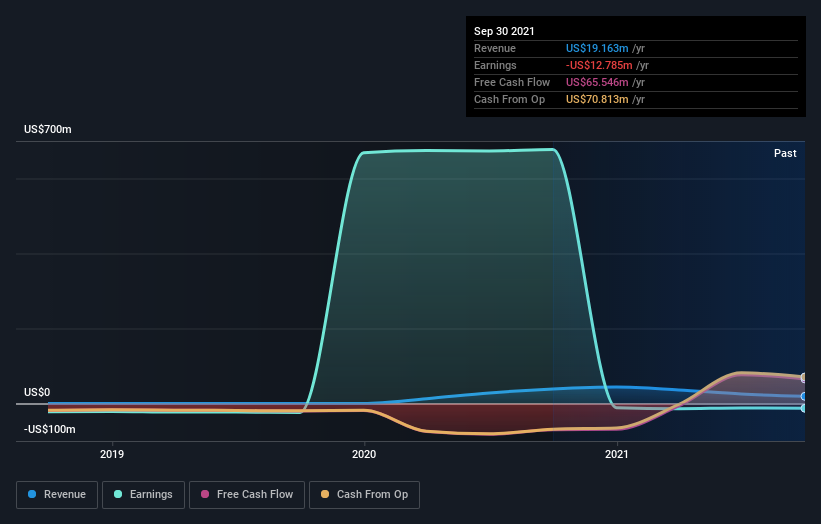XBiotech (NASDAQ:XBIT) shareholders have endured a 48% loss from investing in the stock a year ago
The simplest way to benefit from a rising market is to buy an index fund. When you buy individual stocks, you can make higher profits, but you also face the risk of under-performance. Investors in XBiotech Inc. (NASDAQ:XBIT) have tasted that bitter downside in the last year, as the share price dropped 56%. That's well below the market decline of 3.8%. At least the damage isn't so bad if you look at the last three years, since the stock is down 8.8% in that time. Shareholders have had an even rougher run lately, with the share price down 22% in the last 90 days. But this could be related to the weak market, which is down 13% in the same period.
Now let's have a look at the company's fundamentals, and see if the long term shareholder return has matched the performance of the underlying business.
View our latest analysis for XBiotech
Because XBiotech made a loss in the last twelve months, we think the market is probably more focussed on revenue and revenue growth, at least for now. Shareholders of unprofitable companies usually expect strong revenue growth. That's because it's hard to be confident a company will be sustainable if revenue growth is negligible, and it never makes a profit.
XBiotech's revenue didn't grow at all in the last year. In fact, it fell 51%. That looks like a train-wreck result to investors far and wide. It's no surprise, then, that investors dumped the stock like it was garbage, sending the share price down 56%. Buying shares in companies that lose money, shrink revenue, and see share price declines is unpopular with investors, but popular with speculators (apparently). This company will really need to improve on the numbers before we get excited about it.
You can see how earnings and revenue have changed over time in the image below (click on the chart to see the exact values).
Take a more thorough look at XBiotech's financial health with this free report on its balance sheet.
What about the Total Shareholder Return (TSR)?
We've already covered XBiotech's share price action, but we should also mention its total shareholder return (TSR). The TSR attempts to capture the value of dividends (as if they were reinvested) as well as any spin-offs or discounted capital raisings offered to shareholders. We note that XBiotech's TSR, at -48% is higher than its share price return of -56%. When you consider it hasn't been paying a dividend, this data suggests shareholders have benefitted from a spin-off, or had the opportunity to acquire attractively priced shares in a discounted capital raising.
A Different Perspective
We regret to report that XBiotech shareholders are down 48% for the year. Unfortunately, that's worse than the broader market decline of 3.8%. However, it could simply be that the share price has been impacted by broader market jitters. It might be worth keeping an eye on the fundamentals, in case there's a good opportunity. Regrettably, last year's performance caps off a bad run, with the shareholders facing a total loss of 6% per year over five years. Generally speaking long term share price weakness can be a bad sign, though contrarian investors might want to research the stock in hope of a turnaround. I find it very interesting to look at share price over the long term as a proxy for business performance. But to truly gain insight, we need to consider other information, too. For instance, we've identified 2 warning signs for XBiotech that you should be aware of.
If you are like me, then you will not want to miss this free list of growing companies that insiders are buying.
Please note, the market returns quoted in this article reflect the market weighted average returns of stocks that currently trade on US exchanges.
Have feedback on this article? Concerned about the content? Get in touch with us directly. Alternatively, email editorial-team (at) simplywallst.com.
This article by Simply Wall St is general in nature. We provide commentary based on historical data and analyst forecasts only using an unbiased methodology and our articles are not intended to be financial advice. It does not constitute a recommendation to buy or sell any stock, and does not take account of your objectives, or your financial situation. We aim to bring you long-term focused analysis driven by fundamental data. Note that our analysis may not factor in the latest price-sensitive company announcements or qualitative material. Simply Wall St has no position in any stocks mentioned.

